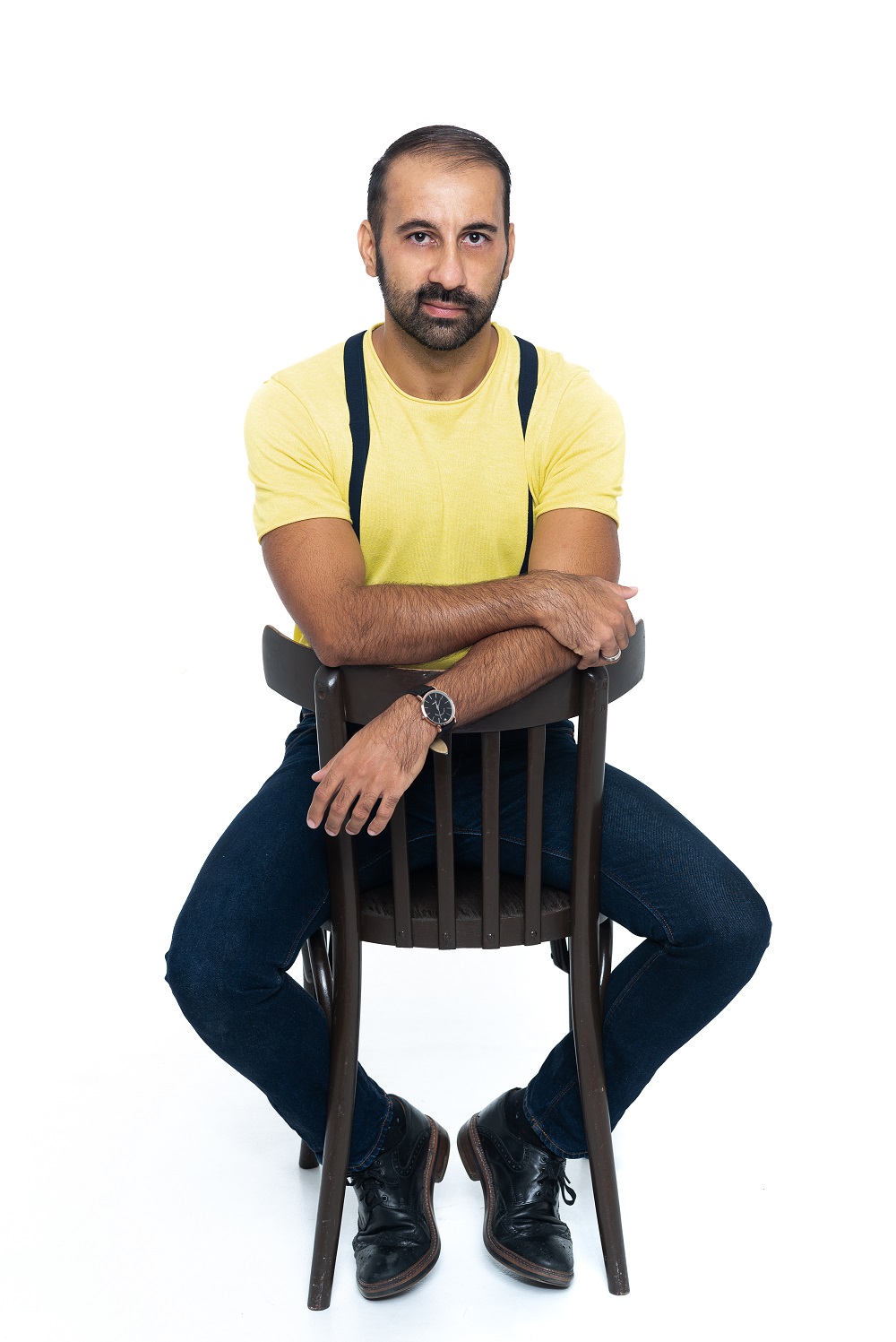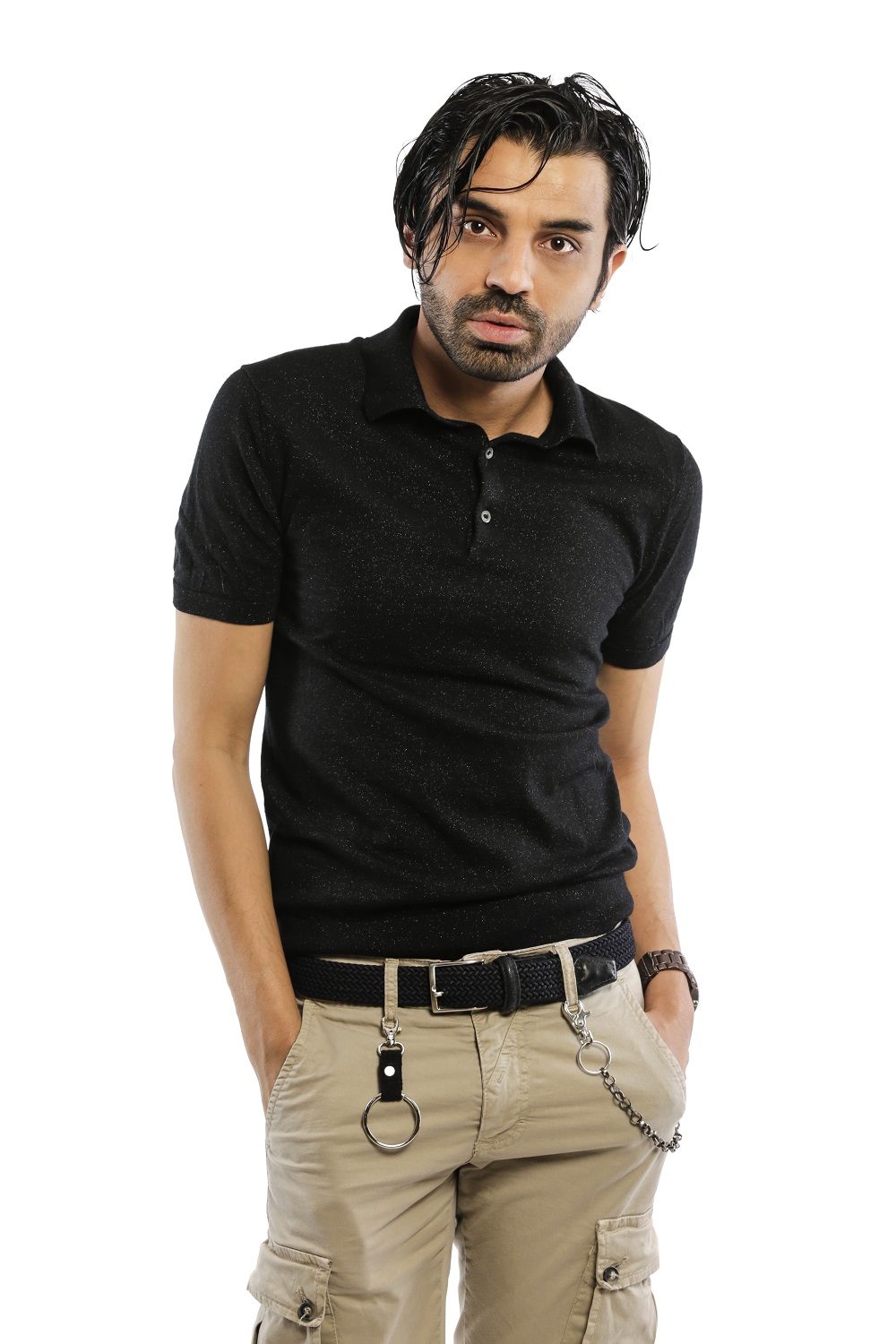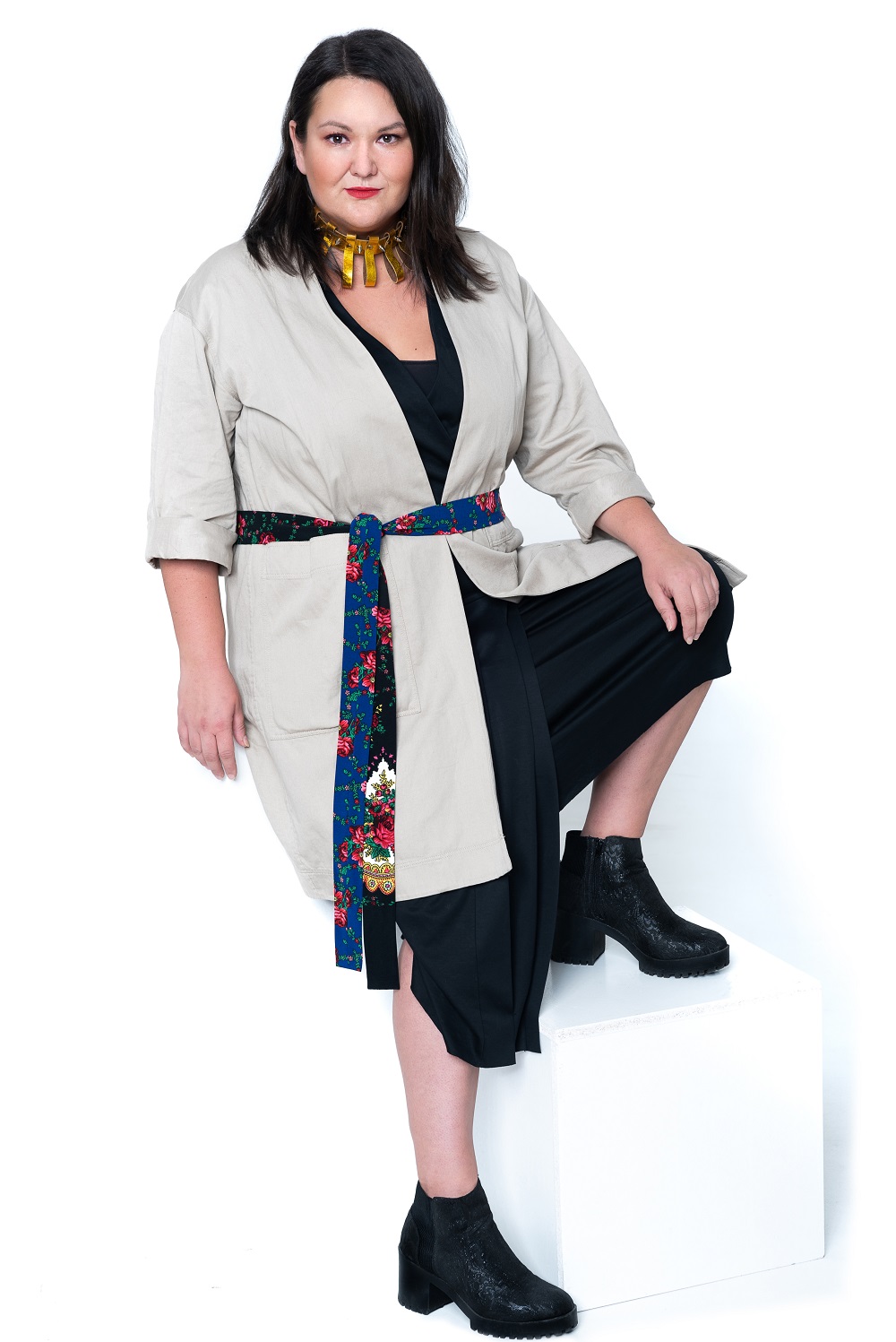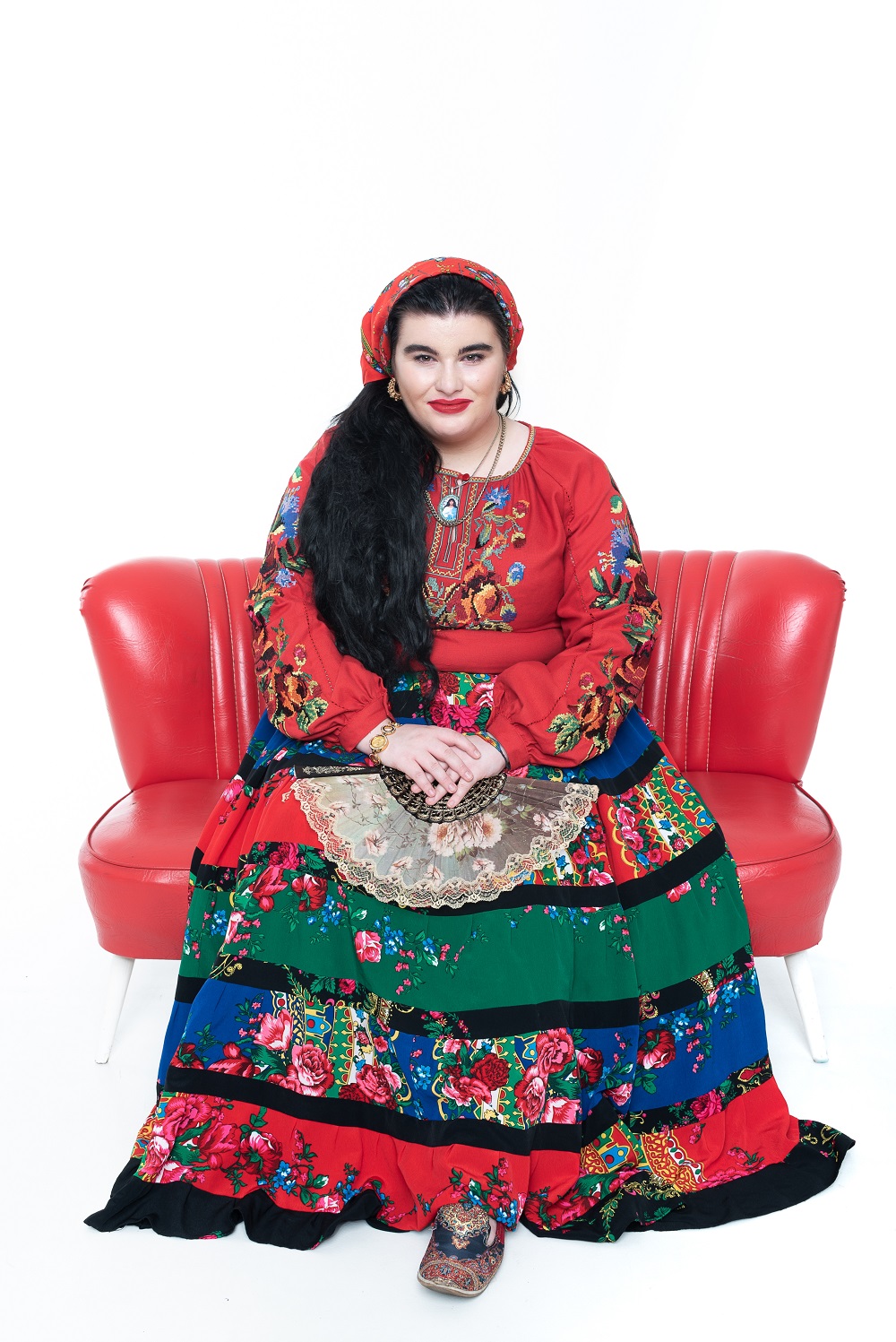Hungary belongs to everybody – Roma activists for equality
Dezső Máté
“Hate is exclusionary, destructive, and a game for weak, frustrated people”

Dezső Máté, a social researcher and Roma LGBTQ activist, is currently finalizing his PhD, his research topic being social resilience and the values of different Roma generations. “I was curious about the values of the different Roma generations from the 1960s to the present day, the emancipatory social movements they had developed in different eras and the forms of social activism present in their lives.”
According to Dezső’s research, the movement of first-generation Roma intellectuals between the 60s and 80s was based on cultural emancipation. At the time, the goal was for society to recognize that the Roma were an equal part of society, and that the community gained visibility through the fine arts. In the case of second-generation Roma intellectuals and activists, cultural emancipation was transformed into political visibility, meaning that the issues of identity, visibility and social equality were brought to the political scene. Then came the third generation, who began to represent the hitherto more physical endurance and social responsibility in psychic resistance as well as in various forms of knowledge production.
“Our generation is able to ask the questions that first- and second-generation Roma activists and intellectuals focused less on. They provided the base to criticize society today and to ask back about how non-Roma movements or academics of previous eras have created different identity policies towards Roma people.” According to Dezső, there are many kinds of activism. Civil law activism, for example, is a visible form of activism that also enters the physical space. But he tries to bring about change differently. “My activism is reflected in my efforts to produce and shape knowledge as a Roma person. I ask questions to make social progress happen.”
Dezső first read studies about Roma people at the university – he realized that in public education they do not pass on any knowledge about minorities and do not provide any positive example for Roma children. At around the same time, he also became aware that no one was talking about Roma LGBTQ people either in the social sciences or in public. “Our work is pioneering in this respect. We were the first in Hungary and internationally to ask questions about what is Roma LGBTQ identity. What social repression and exclusion do Roma LGBTQ people face? Why weren’t we seen in the past, in sociology or in the media?” The answer is complex. According to Dezső, members of the previous generations could not speak on behalf of the Roma LGBTQ people, as they were simply not prepared for the visibility and for addressing the issues that affected them. Even today, only middle-class Roma people talk about LGBTQ Roma in public. Not only the Roma community, but also the majority society and the world had to ‘grow up’ to face the issue of Roma identity being a very heterogeneous reality.
At present, the acceptance of identity may be the most important thing for young Roma LGBTQ people. “Different social repressions affect us multiple times, both at Roma, LGBTQ and society level. We have started talking about this and we feel that the message is reaching more and more young Roma LGBTQ people so as not to be ashamed, rather proud of their Roma or LGBTQ identity. If they are able to do that, they can live a happier, more successful life. Upwards and onwards!”
Joci Márton
“The fact that I speak so boldly today about my gayness is thanks to my Roma-ness”

Joci Márton has always been a Roma activist, but after a while he felt he needed to address the Roma LGBTQ topic as well. He was greatly helped in this by the workshops provided by the Central European University or the Uccu Association, where he actually realized that one’s identity could comprise many parts and that you can be proud of all of them. “If you can identify with one part of your identity on the same level as I identify with my Roma identity, it helps to process all of your other identities: to see yourself better, clearer, more confidently. The fact that I speak so boldly today about my gayness is thanks to my Roma-ness.”
One of his outstanding projects so far has been a photo exhibition focusing on Roma people and diversity. For the time being, it has only been shown in Sofia, then Covid intervened, but it will also be on view in Budapest next year. The aim of the photo series was for members of the Roma community to create photographic and video content about themselves – along with poems and other writings – that portray them with dignity. “I feel we need such visual materials that when a young Roma LGBTQ person sees them in a magazine or online, they can see that there are people in the Roma community who are setting a positive example and this can make it easier to process their own situation. It is a motivating and empowering project.”
The visual representation of Roma people, according to Joci, is quite problematic: “When we are not representing ourselves, it is not up to us to decide how people portray us. When writing about Roma, they usually use photos where, for example, you see a Roma person standing in front of a crumbling house, or an especially dirty gas stove. There’s always a background that greatly controls the whole narrative.” That is why the goal of the project was to break the “tradition” of lamentation and victimizing, and instead show proud, strong and positive people – in a way we have not seen the Roma and LGBTQ people so far.
In fact, society sees Roma people in many different ways – the range of stereotypes is endless. Joci himself has encountered the belief that as a Roma LGBTQ man, he must have been mentally abused – or that he must be a sex worker. Another hurtful stereotype is that Roma families are less accepting of their LGBTQ children. He finds it fundamentally problematic to explain homophobia within the Roma community with Roma culture and traditions, as the only truth is that the Roma community is also a heteronormative society, and thus homophobia is rooted in it in the same way as in the majority society.
Moreover, in many cases, he believes Roma communities are actually more accepting. The parents of a Roma LGBTQ person know first-hand what it is like to be excluded, so they can identify with their child’s situation, but there are also closed Roma communities where transgender people live safely, as community members can only count on each other to be accepted.
This, in turn, does not mean that the general situation of Roma LGBTQ people would be easier. “It is mostly casual racism that pervades the LGBTQ society, which I feel comes more from cis-gendered people and gay men.” According to Joci, it is clear that being a Roma LGBTQ person in Hungary today is more difficult than being a non-Roma LGBTQ person. Regardless, he doesn not think that it should be a competition of who is more opressed. It is important to pay attention to individual problems and difficulties, but it is also important to keep in mind that these are not individual, rather systemic issues. And that is what we, the members of society, need to change. Nonetheless, Joci does not think everyone should be an activist – just politically active. “I firmly believe that one day we will move in a better, more emphatic direction. However small the steps are, people are starting to turn towards each other.”
Boglárka Fedorkó
„It’s not enough to lament with friends about the problems that surround us”

Boglárka Fedorkó first studied archeology and economics, and then became an activist as a Fellow of the Romaversitas program organizing youth exchanges and talks. After graduating, she began working for a sex worker advocacy organization. She is currently busy with a project on human trafficking and exploitation, working extensively with transgender women from various minorities who make a living selling sex. “We are working with twelve partner organizations led by sex workers on a study that provides a much more nuanced picture of the exploitation of human trafficking. In the mainstream media, it is presented as ‘poor brown women exploited by pimps’. However, there are greater nuances that aren’t addressed at the level of research, public policy, or even activism.”
In addition, this year she started a podcast with Márton Joci, titled Ame Panzh, in which Roma intellectuals, including LGBTQ people, respond to various public issues, trying to enrich activism with an anti-racist, queer, feminist direction. She has also been working for the Hungarian Roma fashion brand, Romani Design, for ten years now: “Here, too, we carry out a lot of storytelling projects, in which we try to change the stereotypical image of Roma people, especially Roma women, through visual images and fashion.”
According to Bogi, if someone makes a living from sex, it already reflects that that person has very limited options for survival, and their options are even more limited if they are Roma. The Roma community condemns sex workers in the same way as the majority society – the latter’s dynamics dominate the Roma or the LGBTQ community, too. Perhaps an even more serious problem is that the issue of sex workers is not really addressed by NGOs, social movements or other minorities either: “In LGBTQ society or feminist circles, there has been no improvement in the perception of sex workers or the consideration of their initiatives. These movements, in order to have a broader base, often choose more popular issues, be it marriage equality in the LGBTQ movement or the glass ceiling in the women’s rights movements. There is a growing ideological debate about the morality of sex workers – for some feminists, they cast a bad light on women and the LGBTQ community says they are not mainstream enough. There is a lack of solidarity.” In the long run, the goal would be to decriminalize the activities of sex workers, but it would also help a lot if at least police would stop harassing them.
And what can an individual do? As these are systemic problems both in the civil sphere and at the state level, it is obviously difficult for individuals to implement change, whether we are talking about Roma sex workers or Roma LGBTQ people – or any other minority. But still, everyone can do something for a better world. “If someone is a journalist, they can write articles that dignifiedly present these communities, their living conditions, needs, and life stories. There are possibilities everywhere. That’s why we also started our series of talks: to try to give people an idea as to how they can practice active solidarity to the best of their ability. It is not enough to lament with friends about the problems that surround us. Everyone needs to take action according to their abilities.”
Lolo B-Jones
„When there is not enough space for everyone around the table… You gotta get rid of the table”

Lolo B-Jones is a young Roma activist from England. She is spending eight months in Hungary, working together with a Roma activist group. Lolo is the co-founder of Traveler Pride, one of their greatest achievements being a unified presence of Roma LGBTQ people for the first time in history at the London Pride in 2019. At the age of 17, she became involved in several women’s rights movements and at the same time became an activist of Roma rights through events thematizing Roma genocides, such as Dikh He Na Bister (lit. Look at it and don’t forget), which commemorates the Roma victims of the Holocaust.
Like Bogi, Lolo expresses her struggle for freedom in fashion. Co-founded by her, the products of Dikhlo Collective are based on various traditional Roma folk costumes, the designers themselves being Roma artists. Lolo and her partners want to make traditional Roma clothing available to all Roma, making it easier for them to express their identities. So, everyone pays as much for the pieces as they want. If you don’t have money, you can take them for free.
With the brand, Lolo also wanted to show that Roma LGBTQ people can contribute to Roma culture in the same way as heterosexuals. “People often think that if you dress traditionally, you can’t be an LGBTQ person. Well, I’m both. I am an LGBTQ person, yet I try to keep our cultural heritage alive.”
According to Lolo, it is important to see intersectional communities including LGBTQ Roma people in all areas of life, because if we see only one narrative about Roma people, we project a made-up ‘fairy-tale’ image on them. She thinks there are plenty of undiscovered values under the surface: “I like that Roma fashion, for example, is not about sizes: as a plus-size woman, I can dress as colorfully as I want. All this cannot be said of the majority society.”
She doesn’t think it’s a problem if non-Roma are also buying from them since they support Roma designers. Rather, the problem is rooted in the fact that although many people love and use ‘Gypsy patterns’, they do not think about what is behind Roma culture and are unwilling to deal with Roma issues such as Roma victims of the Holocaust and social issues. Without a society-wide discourse, this topic will never be adequately processed.
Her first experiences in Hungary were not really good – in the first week, for example, taxis refused to transport her. According to her, however, being a Roma LGBTQ person in England is not easy either. Yet, we need to talk carefully about homophobia within the Roma community. “If you’re a Roma LGBTQ person, the majority society likes to hear that your culture doesn’t accept you because it validates their racism. And then they can say that they don’t like Roma people not because they are Roma, but because they are homophobic or transphobic.”
According to Lolo, the problems stem from the fact that Roma communities have 500-600 years of oppression behind them, so these groups try to get every privilege they can. And for this – since oppressed groups want to assert themselves by building their own system that can fit into the greater system – the path often leads through homophobia or transphobia. Lolo herself has never experienced homophobia from her family, but there are still communities and families where she sees it.
According to Lolo, a fundamental problem is that in many instances only privileged people are allowed to speak when it comes to human rights. “The question is whether you get a chair at the table – and apparently you don’t. When there is not enough space for everyone around the table… You gotta get rid of the table. Everyone deserves to be represented. No such tables should exist where only selected people can sit. I am tired of having an unattainable activism that says you have to be so and so educated to sit down at that table and talk about human rights. And you don’t even have to go out to the street with signs. Sometimes it’s enough to teach your kids to love who they want, and all will be well.”
Kanicsár Ádám András
Instagram: @kanicsar






